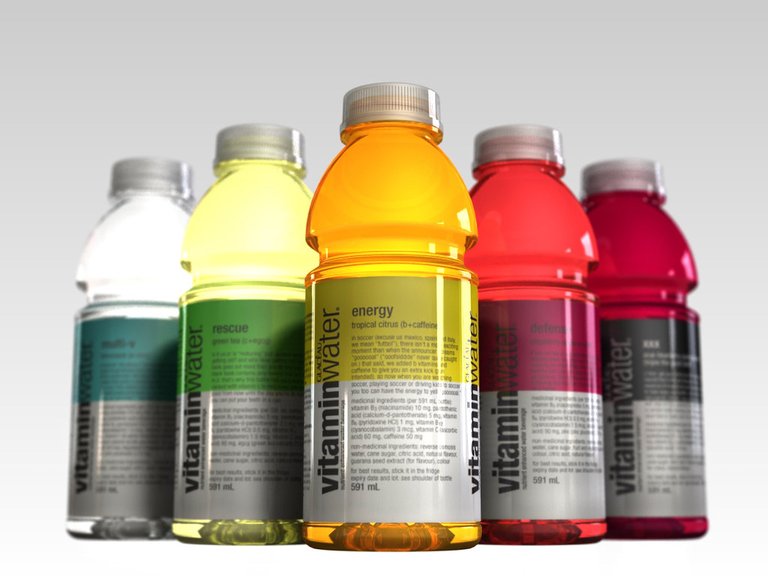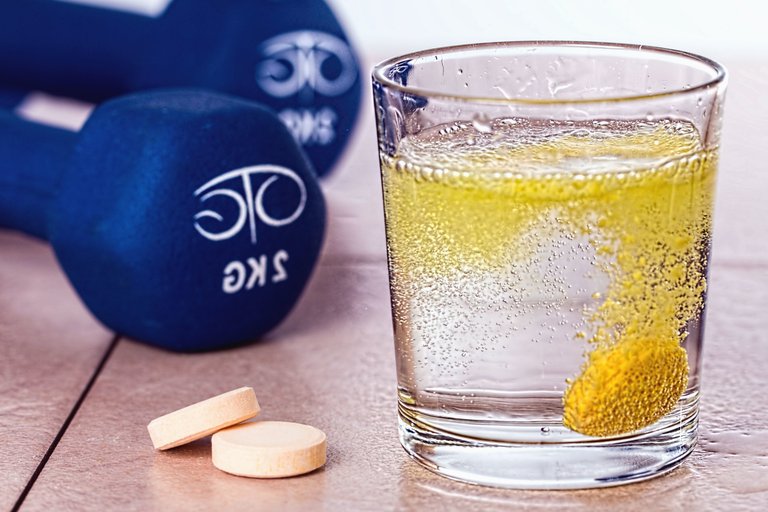Is Vitamin Water Healthy Even When It Supplies Vitamin t the Body
As a child, I remember a time a toothpaste was sold to my mum as being the best and the paste was full charcoal and we used it but it looks like what is good for our health keeps changing because no one rushes to use activated charcoal on their teeth anymore and sure they will still exists as toothpaste but they do not dominate the market. This said, have you heard the word Vitamin Water?
This was first created in the spring of 1996 when J. Darius Bikoff wanted to create a different type of water compared to what other water bottling company sold. In his aim to target cyclists who needed to drink lots of water, he decided to to add vitamin C to the water and called it vitamin water. What would you expect, that people would not buy it? Sorry, because people bought the product and the company was valued at 2.6 billion dollars by 2006 and this led to Coca-cola buying the company for 4.1 billion dollars in 2007.

Agreed that the company was successful but is the product healthy and doing its job? When the word vitamin was added to it, it means one need to check its effectiveness. There is a daily value for consuming vitamin which is the recommended amount of vitamin recommended to take daily but asides this, there is another thing to check out for which is the tolerable upper intake level or UL which is maximum limit of a vitamin a person can take before you overdose.
When it comes to vitamin, most UL levels are very high but it is important to know them so we do not cross the limit. Moreover vitamins that are fat soluble have lower UL levels compared to vitamins that are water soluble. Vitamins like B and C are Water soluble vitamin and the reason why their UL limit is high is because they are used immediately they get into the body and when there is an excess, it is not stored in the body rather it is excreted. Vitamins like A,D,E are fat soluble vitamins that can be stored in the body if there is an excess. Knowing the difference determine water soluble and fat soluble help us identify the risk of overdosing.
Too much vitamin A consumption would lead to pressure in the skull which could put a person in coma, too much vitamin D has been linked to bone pain and kidney stones. Excessive consumption of vitamin E could lead to too much bleeding since vitamin E is a blood thinner.

Back to the vitamin water issue, you must have heard of brand names like Multi-V, Restore, and Essential but in all of these vitamin water, the B and C vitamin are the majority of them and on average, vitamin water would provide about 48% of the needed vitamin for the day and this is the B vitamin while for the C vitamin, it is about 163% of daily intake and in some case up to 250% of daily intake but as we know, vitamin C is water soluble so it is normal that it would pass through our system.
There have been a lot of debates on vitamin water being healthy and this encompasses the use of sugar, and the amount of vitamin in the bottle. While these companies produce vitamin water mostly B and C, the average adult could be deficient in vitamin A D, and C even when vitamin C water is being produced in some of these countries like Canada. Other minerals that people are deficient in includes magnesium and calcium.
Although vitamin water gives the vitamin they mention, you can also get these vitamins from food and vitamin D from sunlight as well. Although vitamin water is good, the sugar added to the drink is the concern. Although it is good in vitamin addition, it also gives more than the recommended daily intake of sugar which has been associated with diabetes, stroke, obesity, heart attack. Bad news about the vitamin water product is that the vitamin they boast of giving is readily available for the average person and most people who drink them aren't even deficient of the vitamin.
Post Reference
https://www.notablebiographies.com/newsmakers2/2007-A-Co/Bikoff-J-Darius.html
https://www.ncbi.nlm.nih.gov/pmc/articles/PMC3210834/
https://www.healthline.com/nutrition/how-much-sugar-per-day#section3
https://www.reuters.com/article/coca-cola-vitaminwater
https://www.healthline.com/nutrition/15-calcium-rich-foods#section3
https://www.verywellhealth.com/fat-vs-water-soluble-998218
https://www.vitaminwatercanada.ca/en/products/
https://www.webmd.com/vitamins-and-supplements/vitamins-minerals-how-much-should-you-take#1
https://www.healthline.com/nutrition/how-to-increase-vitamin-d#1.-Spend-time-in-sunlight
https://ods.od.nih.gov/factsheets/Magnesium-Consumer/
https://www.huffpost.com/entry/the-dark-side-of-vitaminw_b_669716
https://www.canada.ca/en/health-canada/services
https://www.healthline.com/nutrition/15-calcium-rich-foods#section3
https://www.healthline.com/nutrition/foods-high-in-vitamin-a#section1
https://www.justvitamins.co.uk/blog/what-are-water-soluble-vitamins/#.XlVg4kNyZTY
https://www.healthline.com/nutrition/vitamin-c-foods#section20
Image Reference
Image 1 || Flickr || vitamin water 01
Image 2 || Pixnio|| Vitamin Pill Water
Sending Love and Ecency Curation Vote!

It is just a way to get more money, like many of the vitamin supplements found everywhere!
Thanks for your contribution to the STEMsocial community. Feel free to join us on discord to get to know the rest of us!
Please consider delegating to the @stemsocial account (85% of the curation rewards are returned).
Thanks for including @stemsocial as a beneficiary, which gives you stronger support.
Thv problem with us is, whenever we find a product that says it has health benefits we don't know when to stop. We keep taking and taking as though it has no daily health requirements. Such an eye opening content, thanks for sharing.